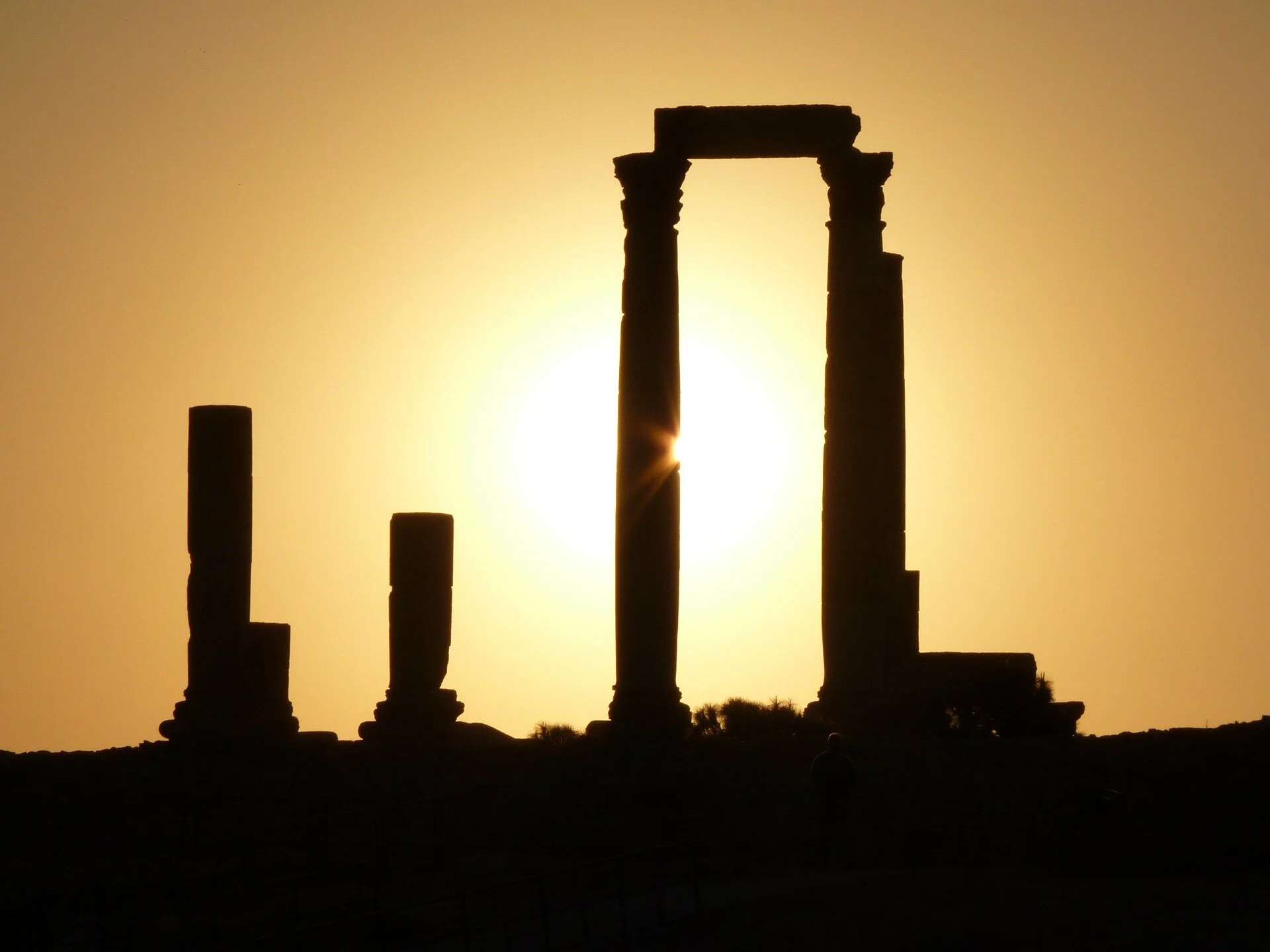Ancient Roman Philosophy from Wheelock's Latin
When I was in college I studied Latin for three years under Ken Bubb (RIP—Requiescat in pace), one of the kindest, gentlest, and yet most passionate—and compassionate—teachers I have ever met. Ken Bubb even let me get my first classroom teaching experience by teaching a session of his Latin I class for a day when I was a third-year Latin student, presumably because he could see that I was a driven student and he wanted me to remain as inspired as I could possibly be to keep pushing forward with my education and into my future career as an educator.
Ken Bubb (1940–2016), my Latin teacher at Solano Community College
So I’ve recently been working my way, once again, through Wheelock’s Latin, the text I used to study Latin originally, both for its own sake and in hope of being able one day to teach Latin in addition to philosophy. While I was working my way through the early chapters, I was struck by how clear a picture (albeit a simplified one) of Ancient Roman philosophy emerges from the brief passages and simplified sentences in Wheelock’s Latin.
It’s quite easy to see, for example, that the Ancient Romans were an infinitely more practical people than the Ancient Greeks, with Roman philosophy being less lofty and metaphysical and more about practical philosophy as the art of life (ars vitae, in latin), promoting the health of the state, molding the character of the Roman people (populus Romanus), and avoiding the many dangers of money and power. Although Ancient Roman stoicism does have a metaphysical component in its views on the cosmic order of things, Ancient Roman stoicism was also highly practical and down-to-Earth, as can be seen in various passages from Seneca in Wheelock’s Latin.
In the interest of whetting your appetite for Ancient Roman philosophy, here is a small selection of philosophical passages and sentences from the early chapters of Wheelock’s Latin and my own translations of them. Note that some of these are unedited Latin passages and sentences from the original authors while others are simplified for the purpose of accessibility to beginning Latin students. Enjoy!
Horace: The Grass Is Always Greener
(Wheelock’s Latin, Chapter 3)
Agricola et vitam et fortunam nautae saepe laudat; nauta magnam fortunam et vitam poetae saepe laudat; et poeta vitam et agros agricolae laudat. Sine philosophia avari viri de pecunia semper cogitant: multam pecuniam habent, sed nihil virum avarum satiat.
Translation: The farmer often praises both the life and the fortune of the sailor; the sailor often praises the great fortune and life of the poet; and the poet praises the life and fields of the farmer. Without philosophy greedy men always think about money: they have much money, but nothing satisfies a greedy man.
Cicero: The Rarity of Friendship
(Wheelock’s Latin, Chapter 4)
Pauci viri veros amicos habent, et pauci sunt digni. Amicitia vera est praeclara, et omnia praeclara sunt rara. Multi viri stulti de pucunia semper cogitant, pauci de amicis; sed errant: possumus valere sine multa pecunia, sed sine amicitia non valemus et vita est nihil.
Translation: Few men have true friends, and few are worthy. True friendship is splendid, and all splendid things are rare. Many foolish men always think about money, few about friends; but they are mistaken: we are able to be well without much money, but without friendship we are not strong and life is nothing.
Livy: On the Decline of Roman Morals
(Wheelock’s Latin, Chapter 6)
Populus Romanus magnos animos et paucas culpas habebat. De officiis nostris cogitabamus et gloriam belli semper laudabamus. Sed nunc multum otium habemus, et multi sunt avari. Nec vitia nostra nec remedia tolerare possumus.
Translation: The Roman people used to have great spirits and few faults. They were often thinking about our duties and were always praising the glory of war. But now we have much leisure and many are greedy. We are able to tolerate neither our vices nor the remedies.
Short Philosophical Sentences in Wheelock’s Latin
Horace: You often praise but reject both the fortune and the life of the ancient fatherland. (Et fortunam et vitam antiquae patriae saepe laudas sed recusas.—Chapter 2)
Seneca: I give myself to philosophy. (Me philosophiae do.—Chapter 2)
Cicero: Philosophy is the art of life. (Philosophia est ars vitae.—Chapter 2)
Cicero: Few men are eager for wisdom. (Pauci viri sapientiae student.—Chapter 3)
Horace: Adverse fortune does not frighten a man of great wisdom. (Fortuna adversa virum magnae sapientiae non terret.—Chapter 3)
Horace: A greedy man is always in need. (Semper avarus eget.—Chapter 3)
Seneca: No abundance of money satisfies a greedy man. (Nulla copia pecuniae avarum virum satiat.—Chapter 3)
Publilius Syrus: Advise friends in secret; praise [them] openly. (Secrete amicos admone; lauda palam.—Chapter 3)
Seneca: To err is human. (Errare est humanum.—Chapter 4)
Cicero: Evil men are in your number and think about the destruction of good men. Aid the good men; preserve the fatherland and the Roman people. (Mali sunt in nostro numero et de exitio bonorum virorum cogitant. Bonos adiuvate; conservate patriam et populum Romanum.—Chapter 4)
Ovid: Rise above pride and your anger. (Supera animos et iram tuam.—Chapter 5)
Terence: Because of youth, my sons, you were not seeing the evil things of life. (Propter adulescentiam, filii mei, mala vitae non videbatis.—Chapter 5)
Seneca: Human life is punishment. (Vita humana est supplicium.—Chapter 5)
Seneca: If I ever have enough money, I will give myself to counsel and philosophy. (Si quando satis pecuniae habebo, tum me consilio et philosophiae dabo.—Chapter 5)
Publilius Syrus: If the spirit is weak, it will not be able to tolerate good fortune. (Si animus infirmus est, non poterit bonam fotunam tolerare.—Chapter 6)
Publilius Syrus: Where laws are strong, there free people are able to be well. (Ubi leges valent, ibi populus liber potest valere.—Chapter 6)
Horace: Good men hate to sin because of the love of virtue. (Boni propter amorem virtutis peccare oderunt.—Chapter 7)
Martial: You dare to be a good man under a harsh ruler and evil times. (Sub principe duro temporibusque malis audes esse bonus.—Chapter 7)
Horace: Foolish people often give honors to unworthy men. (Populus stultus viris indignis honores saepe dat.—Chapter 7)
Seneca: Leisure without letters (i.e., literature) is death. (Otium sine litteris mors est.—Chapter 7)
Horace: Life gives nothing to mortals without great labor. (Nihil sine magno labore vita mortalibus dat.—Chapter 7)
Laberius: O friends, we are destroying liberty. (O amici, libertatem perdimus.—Chapter 8)
Publilius Syrus: We will never conquer danger without danger. (Numquam periculum sine periculo vincemus.—Chapter 8)
Cicero: Love of praise drags men. (Amor laudis homines trahit.—Chapter 8)
For Further Reading:
Wheelock’s Latin, 7th edition by Frederic M. Wheelock and Richard A. LaFleur
Wheelock’s Latin Reader, 2nd edition: Selections from Latin Literature by Richard A. LaFleur










